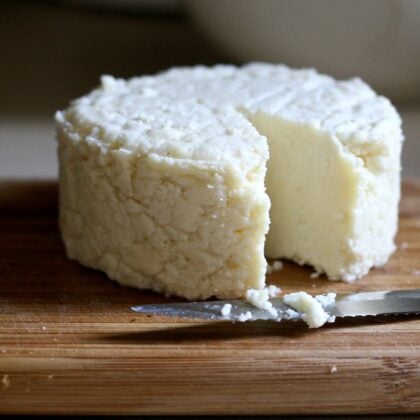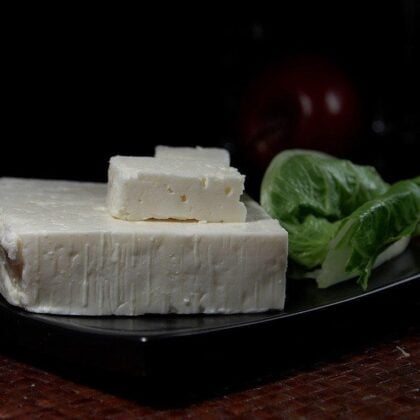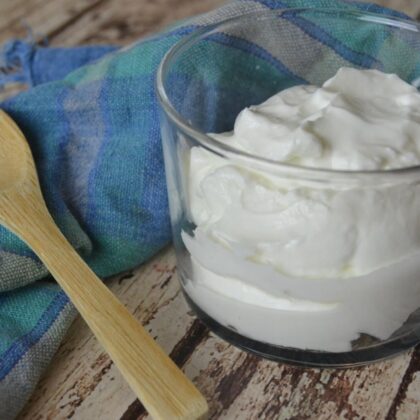
More and more of us are paying close attention to our diet and the health of our intestines. In particular, we have become aware that the microbiota plays an essential role in intestinal balance and in our general health.
To balance your microbiota and feel better every day, you can consume prebiotics or probiotics. The difference is just one letter, but probiotics and prebiotics are completely different.
So what is the difference between probiotics and prebiotics? In what context and for what reason can they be consumed? 🤔
⬇️Réponse detailed in this article ⬇️
Probiotics
The WHO defines probiotics as "living microorganisms which, when administered in adequate quantities, confer health benefits on the host". This means that Probiotics are good microbes that can help us digest fibre and nutrients.
Our digestive system is home to a whole ecosystem of good bacteria and yeasts that help the large intestine build up its natural defences. More specifically, this ecosystem is formed by lactic ferments, which prevent pathogenic micro-organisms from developing in the digestive tract.
In practical terms, probiotics are good bacteria. They belong to different families, including bifidobacteria, lactobacilli, lactococci and streptococci.
To understand probiotics, remember that these good bacteria arrive in our bodies through diet or food supplements.
You should also know that probiotics have a transitory action We absorb them, they act and are then eliminated.
Prebiotics
Prebiotics are substances that good bacteria eat. They serve as food for the intestinal microbiota.
In practical terms, prebiotics are the digestible parts of food that ferment in our intestines to feed the good bacteria. During digestion, the good bacteria produce fatty acids. These acids are essential for protecting the bacteria that form the intestinal barrier.
Prebiotics are not living microorganisms. They are fibres found in certain foods or food supplements.
To take things a step further, you should know that once digested, prebiotics create...postbiotics! And postbiotics are nutrients that are also very important for our body's good health.
What are the effects of probiotics and prebiotics?
Prebiotics and probiotics have different beneficial effects, they act in our bodies in a complementary way.
Probiotics
Probiotics are useful for :
- ensure that digestion goes smoothly,
- maintain regular transit,
- prevent illnesses such as diarrhoea and constipation,
- regulate stress
- help the body fight infections and allergies more effectively.
In particular, you can turn to probiotics to manage diarrhoea better (when you have to take antibiotics, for example), to avoid bloating or to digest certain foods and fibres better.
Prebiotics
Prebiotics are beneficial because they enable optimise the effectiveness of the microbiota (and therefore of probiotics)).
While they are therefore complementary, they also have other beneficial effects of their own:
- they can help to lower cholesterol levels,
- They help to reduce sugar levels after meals,
- they make you feel fuller
- They promote good intestinal transit and help prevent constipation.
This means that it can be highly beneficial to consume both probiotics and prebiotics. In particular, you can start a course of probiotics to diversify and strengthen your microbiota. After this course, you can increase your intake of prebiotics to help all the good bacteria to develop properly.
What forms do probiotics and prebiotics take?
Prebiotics
Although we know about prebiotics in the form of food supplements, you should know that these are good bacteria that are also found naturally in certain foods.
If you want a diet rich in prebiotics, choose legumes (chickpeas), nuts (pistachios, cashews), fruit (grapefruit, nectarines or pomegranates) or cereals such as oats, barley and wheat. Note that some manufacturers offer foods in which they add prebiotics, such as certain cereal bars or health biscuits.
Probiotics
Probiotics are found in foods such as kefir and yoghurt. They are most often consumed in tablet or powder form.
Probiotics, prebiotics and lactose
Scientists are currently studying the relationship between prebiotics and lactose.. In people who do not suffer from intolerance, they found that lactose modify the microbiota. In practical terms, this means that lactose (when properly assimilated by the body) could have the same effect as a prebiotic. This discovery is not all that surprising, since we already knew that breast milk contained galacto-oligosaccharides and lactulose: lactose derivatives that are considered to be prebiotics!
There is still a great deal of research to be done to fully understand the microbiota and the action of different foods on it. Year on year, we are also likely to discover other prebiotics and probiotics. All these scientific discoveries are all the more important when you want to look after your health or simply when you suffer from food intolerances such as lactose intolerance.

Hello, I'm Vincent
Like you, I'm lactose intolerantI know exactly what you're going through and the difficulties you encounter on a daily basis. For over 10 years, I've been helping our customers to use our dietary supplements and giving advice and tips on how to improve their digestive comfort. I'm also a keen cook and gourmet, so you'll find my favourite recipes for a lactose-free diet in this blog.
Lactose intolerance is not inevitable! With LACTOLERANCE you can digest with complete peace of mind






